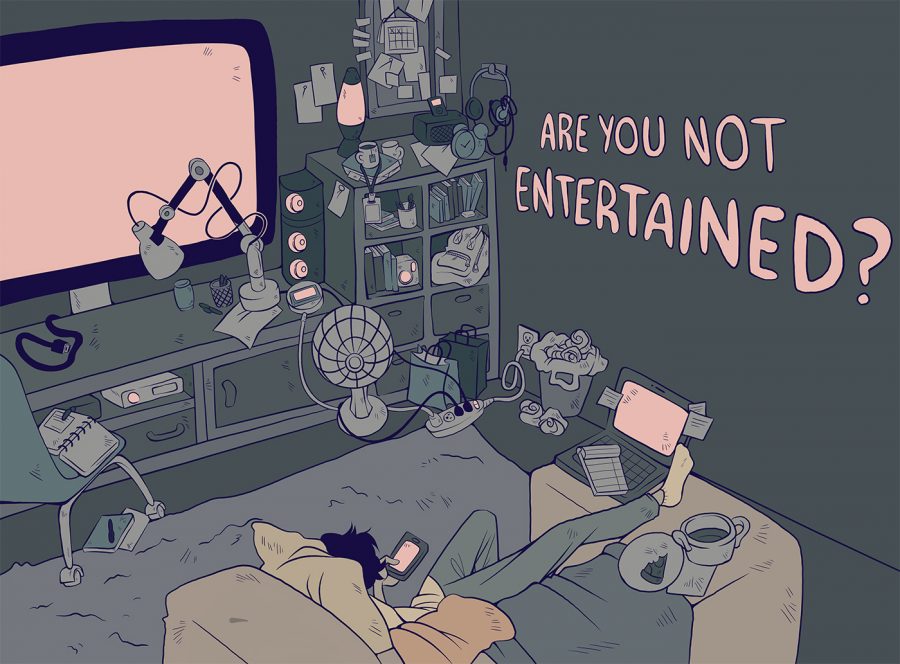Editorial: Are You Not Informed?
March 5, 2020
Nothing puts us to sleep faster than talking about news or the latest headlines. Unless, of course, it’s explosive and scandalous.
The tragic helicopter accident that killed Kobe Bryant, his daughter and seven others.
Juice Wrld’s, Caroline Flack’s and Pop Smoke’s untimely deaths.
The slightly terrifying yet popular meme—the coronavirus.
These are the stories that have us checking our phones, scrolling through Twitter and engaging online the most.
Outcome of local elections? Next. The unemployment rate this month? Boring. Trump’s amendments to healthcare policies? Who cares?
Young adults and teenagers are consumed with entertainment; we all have the gaming accounts and TV subscriptions to prove it. But when it comes to informing ourselves, we’re falling behind other generations.
Be honest: When was the last time you bought a newspaper subscription? Or perhaps you pay for a Dallas Morning News online subscription? Well, unless you are in the 2% of teenagers that actually read newspapers, chances are that the $1.69 per week for online news is a bit too pricey.
Yet somehow our wallets can still afford the $13 for Netflix each month.
“But I read the news! Even my friends and I discuss what’s going on in the world.” Yes, you are correct, there are always outliers. However, our consumption of news is not carefully researched, selected or verified.
Twitter, Instagram, Snapchat and Facebook have replaced print and cable news as the most popular delivery method of current event consumption. When activism goes viral, it makes us more aware of significant events and people that we would otherwise ignore.
Greta Thunberg, David Hogg, Malala Yousafza and even Kaylen Ward, The Naked Philanthropist, are all people with millions of followers who bring unknown complex phenomena to the mainstream media.
The trend of amusing instead of informing isn’t a new one. Neil Postman’s 1985 book, “Amusing Ourselves to Death,” said it best:
“The problem is not that television presents us with entertaining subject matter, but that all subject matter is presented as entertaining.”
So what happens when the only way to reach people is by making news entertaining?
The answer is simple: staying up-to-date and modern, like many mainstream broadcasts do every day.
The Washington Post has created a wildly popular TikTok account with almost 400k followers.
NPR’s podcast “Up First” condenses all the biggest headlines you need to know into a 10-minute episode, perfect for the daily commute or afternoon lunch break.
Without awareness of our world and what is happening in our local communities, the future of politics, the environment and the economy will suffer under uneducated leaders and decisions. We won’t understand how our jobs and lifestyles affect our society as a whole, which would lead to ignorance and disconnect between communities.
“So what can I do?”
The truth is that it’s a whole lot easier than you might think.
There are plenty of entertaining news outlets, activists and political leaders on Twitter to mindlessly scroll through when you’re waiting for class to start.
If you’d like, you can download a few NPR episodes (they’re free). Or if you really want to go crazy, you can cough up the $1.69 per week to get full access to the Dallas Morning News website.
But if not, at least listen to a podcast or two.



